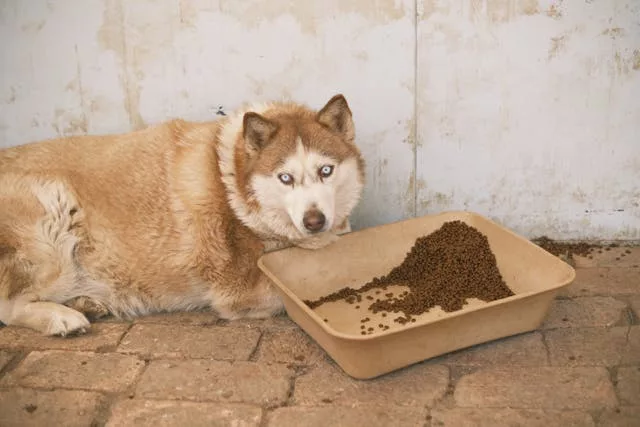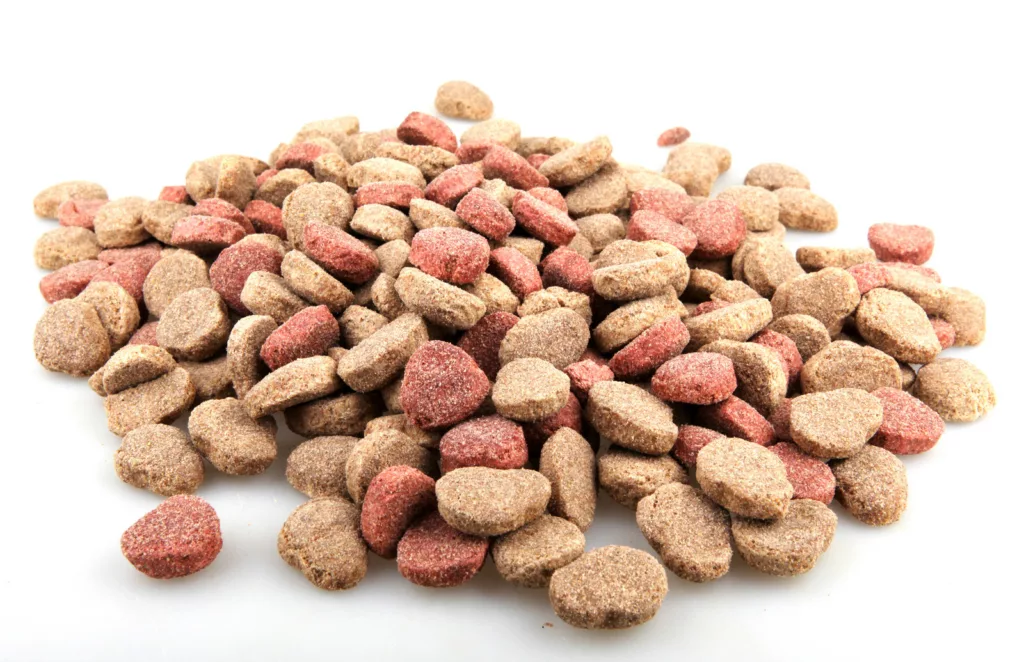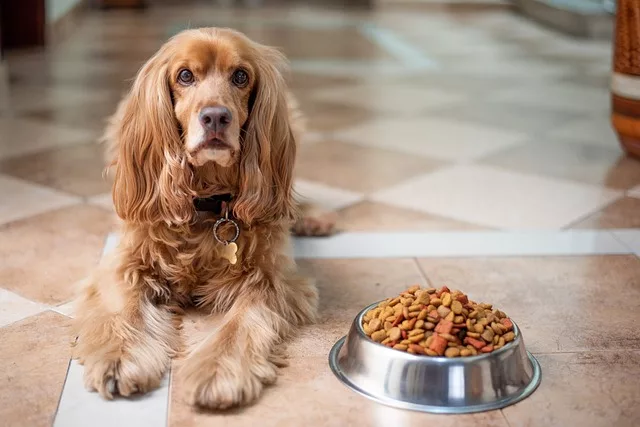Introduction to Dog Gastrointestinal Issues
As a dog owner, it’s important to understand that your furry friend’s health is not just about regular exercise and grooming. A significant part of their well-being lies in their gut health. This article will provide you with a comprehensive understanding of dog gastrointestinal issues and how to manage them effectively.
- Understanding Canine Digestive Problems – Just like humans, dogs can also suffer from a variety of digestive problems. These can range from minor issues like indigestion or constipation to more serious conditions like pancreatitis or inflammatory bowel disease. The digestive system of a dog is quite complex and involves several organs, including the mouth, esophagus, stomach, and intestines. Any disruption in the functioning of these organs can lead to digestive problems
- Common Symptoms of Dog Gastrointestinal Issues – Recognizing the symptoms of gastrointestinal issues in dogs is the first step towards ensuring their gut health. Some common signs include:
- Loss of appetite
- Vomiting or diarrhea
- Abdominal pain or bloating
- Weight loss
- Changes in stool consistency or color
If you notice any of these symptoms in your dog, it’s crucial to consult a vet immediately. Early detection and treatment can prevent the condition from worsening and ensure your dog’s overall health and happiness.
In the following sections, we will delve deeper into the importance of feeding routines in managing your dog’s gut health, how to create a dog feeding schedule, and the ideal diet for dogs with gastrointestinal issues. We will also share some case studies to illustrate how feeding routines can help manage dog gastrointestinal issues effectively.
The Importance of Feeding Routines in Dogs

Ever wondered how important feeding routines are for your pooch’s tummy health? Sticking to a regular feeding timetable can be a game-changer in dodging tummy troubles and handling gut issues. Ready to dive deeper?
- How consistent feeding routines can prevent digestive problems – Consistency is key when it comes to feeding your dog. Dogs thrive on routine, and a regular feeding schedule can help their digestive system function optimally. When your dog knows when to expect their meals, their body can prepare for digestion and absorption, reducing the risk of digestive problems such as bloating, constipation, and diarrhea.
Moreover, a consistent feeding routine can also help you monitor your dog’s appetite and bowel movements, which are important indicators of their overall health. Any changes in these patterns could be a sign of underlying health issues that need immediate attention. - The role of feeding routines in managing dog gastrointestinal issues – Feeding routines are not just about preventing digestive problems, but they also play a significant role in managing existing gastrointestinal issues in dogs. For dogs suffering from conditions like Irritable Bowel Syndrome (IBS) or Inflammatory Bowel Disease (IBD), a regular feeding schedule can help manage their symptoms and improve their quality of life.
Feeding your dog at the same times each day can help regulate their bowel movements and reduce flare-ups of their condition. Additionally, a consistent feeding routine allows you to control the quantity and quality of food your dog consumes, which is crucial in managing gastrointestinal issues.
Wrapping up, a regular feeding regimen is a straightforward and potent method to keep your pooch’s digestive health in check. It’s not just a preventative measure against digestive complications, but also a crucial part of handling gut-related problems. So, isn’t it time you set and adhered to a consistent feeding timetable for your four-legged companion?
Creating a Dog Feeding Schedule

Ever thought about the importance of a meal plan for your canine companion? It’s not just about the type of food, but also the timing and frequency. Let’s explore how to tailor a feeding routine that suits your dog’s nutritional needs.
Understanding Your Dog’s Dietary Needs
Every dog is unique, and so are their dietary needs. It’s essential to understand these needs to create a feeding schedule that promotes optimal gut health. Here are two key steps to understanding your dog’s dietary needs:
- Assessing your dog’s age, breed, and health status – Age, breed, and health status are significant factors that influence a dog’s dietary needs. Puppies require more frequent meals with high protein content to support their growth. On the other hand, senior dogs may need fewer calories but more fiber and certain nutrients. Breed-specific dietary requirements also exist. For instance, large breeds may need food that supports joint health, while small breeds may require energy-dense food. Health status, including any existing gastrointestinal issues, will also affect dietary needs.
- Consulting with a vet for personalized advice – Every dog is unique, and a one-size-fits-all approach doesn’t work when it comes to their diet. It’s always best to consult with a vet who can provide personalized advice based on your dog’s specific needs. They can guide you on the right type of food, portion sizes, and feeding frequency, taking into account factors like your dog’s age, breed, health status, and lifestyle.
Understanding your dog’s dietary needs is the first step in creating a feeding schedule that promotes gut health. In the next section, we’ll discuss how to establish a routine feeding schedule for your dog.
Establishing a Routine Feeding for Dogs
Establishing a routine feeding schedule for your dog is a crucial step in managing their gut health. This involves setting consistent feeding times and sticking to the schedule. Let’s delve into these two key aspects:
- Setting Consistent Feeding Times
Just like humans, dogs thrive on routine. Setting consistent feeding times helps regulate their digestive system, reducing the risk of gastrointestinal issues. It’s recommended to feed adult dogs twice a day – once in the morning and once in the evening. Puppies, on the other hand, require more frequent meals – typically three to four times a day. Remember, the exact feeding times can vary based on your dog’s age, breed, and health status.
- Sticking to the Schedule: Consistency is Key
Once you’ve established a feeding schedule, it’s crucial to stick to it. Consistency is key in maintaining your dog’s gut health. Regular feeding times not only help regulate their digestive system but also train them to expect meals at certain times, reducing anxiety and behavioral issues. It’s important to note that sudden changes in feeding times can disrupt your dog’s digestive system and lead to gastrointestinal issues.
Here’s a simple table to help you understand the importance of a consistent feeding schedule:
| Benefits of Consistent Feeding Schedule |
|---|
| Regulates the digestive system |
| Reduces the risk of gastrointestinal issues |
| Trains dogs to expect meals at certain times |
| Reduces anxiety and behavioral issues |
To wrap things up, creating a consistent meal plan for your furry friend is a vital part of maintaining their digestive wellness. Don’t forget, regularity is the secret – adhere to the plan and only make changes when advised by a professional vet.
Dog Diet for Gastrointestinal Issues

Ever pondered the significance of your pup’s diet in maintaining their gut health? The correct nourishment can mitigate digestive problems and boost their overall health. Shall we explore how to select the most suitable food for your four-legged buddy?
Choosing the Right Food
Choosing the right food for your dog is not just about picking the most expensive or the most advertised brand. It’s about understanding what ingredients are beneficial for your dog’s gut health and which ones to avoid, especially if your dog has digestive problems.
- Ingredients to look for in dog food – When shopping for dog food, look for ingredients that are easy to digest and promote gut health. These include lean proteins like chicken, turkey, and fish, which are essential for muscle development and repair. Whole grains such as brown rice and oatmeal provide dietary fiber that aids digestion. Fruits and vegetables like pumpkin, sweet potatoes, and blueberries are rich in vitamins, minerals, and antioxidants that support overall health. Probiotics are also beneficial as they help maintain a healthy balance of gut bacteria.
- Ingredients to avoid for dogs with digestive problems – If your dog has digestive problems, certain ingredients can exacerbate the issue. Avoid foods with artificial colors, flavors, and preservatives as they can irritate the digestive system. High-fat foods can lead to pancreatitis, a serious condition that affects the pancreas. Foods with corn, wheat, and soy are often hard for dogs to digest and can cause allergies. Lastly, avoid feeding your dog foods with added sugars, as they can lead to obesity and other health problems.
Remember, every dog is unique and what works for one might not work for another. It’s always best to consult with your vet before making any significant changes to your dog’s diet.
Feeding Dogs with Digestive Problems

When your furry friend is dealing with digestive issues, it’s crucial to adjust their feeding routine to help manage their symptoms and improve their overall gut health. Here are two key strategies to consider:
- Adjusting Portion Sizes
Overfeeding can exacerbate digestive problems in dogs. It’s important to provide your dog with the right amount of food to avoid overloading their digestive system. According to the American Kennel Club, a dog’s portion size should be determined by their age, weight, and activity level. For instance, a highly active dog may require more food than a less active one. However, for dogs with digestive issues, it’s often beneficial to feed them smaller, more frequent meals throughout the day instead of one or two large ones. This can help ease digestion and reduce the risk of bloating and discomfort.
- Introducing New Foods Gradually
Switching your dog’s diet abruptly can lead to gastrointestinal upset. If you need to introduce new food into your dog’s diet, do it gradually. Start by mixing a small amount of the new food with their current food. Gradually increase the proportion of the new food while decreasing the amount of the old food over a period of 7-10 days. This slow transition will help your dog’s digestive system adjust to the new diet without causing distress.
Let’s not forget, each pup is special and what’s beneficial for one might not be for another. Always seek advice from your veterinarian before making major alterations to your dog’s eating habits or meal schedule.
Case Studies: Managing Dog Gastrointestinal Issues with Feeding Routines
Are you ready to dive into some real-life scenarios that show the impact of feeding schedules on a pup’s digestive health? These instances will give you a clearer picture of how to apply the concepts we’ve been talking about.
Case Study 1: Improving a dog’s gut health with a consistent feeding schedule
Meet Max, a 3-year-old Golden Retriever who was suffering from frequent bouts of diarrhea and vomiting. His owner, Sarah, was worried and decided to consult a vet. The vet suggested that Max’s gastrointestinal issues might be due to an inconsistent feeding schedule.
Sarah decided to implement a strict feeding routine for Max. She started feeding him twice a day, at 8 AM and 5 PM, with the same amount of food each time. She also ensured that Max had access to fresh water throughout the day.
After a few weeks, Sarah noticed a significant improvement in Max’s gut health. His episodes of diarrhea and vomiting reduced drastically, and he seemed more energetic and happy. This case study highlights the importance of a consistent feeding schedule in managing a dog’s gut health.
Case Study 2: Overcoming canine digestive problems with diet changes
Next, we have Bella, a 5-year-old Beagle who was experiencing frequent gas and bloating. Bella’s owner, John, was concerned about her discomfort and sought advice from a vet. The vet suggested that Bella’s diet might be the cause of her digestive problems.
John decided to make some changes to Bella’s diet. He replaced her regular dog food with a high-fiber diet, which is known to aid digestion. He also started giving her probiotic supplements to promote a healthy gut flora.
Within a few weeks, Bella’s digestive problems started to subside. She was less gassy, her bloating reduced, and she seemed more comfortable overall. This case study demonstrates how diet changes can effectively manage canine digestive problems.
Isn’t it fascinating how much a well-structured feeding routine and a nutritious diet can do for your dog’s gut health? But hey, let’s not forget that each dog is a one-of-a-kind creature. What’s good for the goose may not be good for the gander, right? So, before you go about shaking up your dog’s diet or feeding schedule, make sure to have a chat with your vet. They’re the experts, after all!
Key Takeaways: Dog Health and Feeding Routines
As we wrap up this enlightening adventure into the realm of canine digestive health and meal schedules, let’s recap the main takeaways. These nuggets of knowledge will act as your roadmap in navigating your pup’s gut health successfully.
- The role of a consistent feeding schedule in managing dog gastrointestinal issues: A regular feeding schedule is crucial for maintaining your dog’s gut health. Consistent feeding times allow your dog’s body to prepare for digestion and absorption, monitor their appetite and bowel movements, and regulate their food intake. This routine can prevent digestive problems and manage existing gastrointestinal issues. Remember, consistency is key.
- The importance of a balanced diet for dogs with digestive problems: The food your dog eats plays a significant role in their gut health. A balanced diet, rich in lean proteins, whole grains, fruits, vegetables, and probiotics, can help manage and prevent gastrointestinal issues. Avoid foods with artificial additives, high-fat content, and common allergens. Adjust portion sizes according to your dog’s needs and introduce new foods gradually to avoid upsetting their stomach. Always consult with a vet before making significant changes to your dog’s diet.
Keep in mind, every pooch is an individual, and what’s effective for one might not be for another. Always have a discussion with a vet prior to making any substantial modifications to your dog’s meal routine or diet. The well-being and joy of your dog are worth the endeavor.







